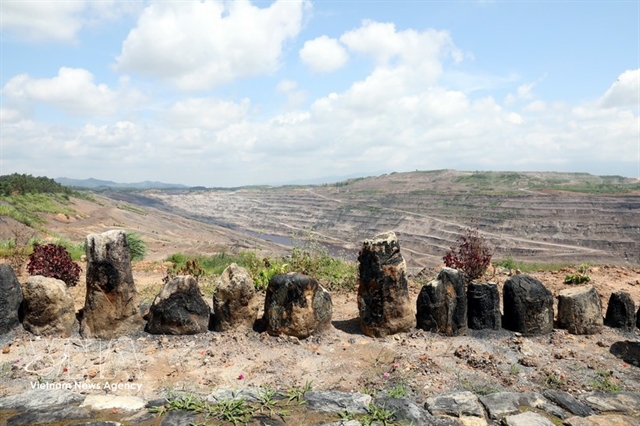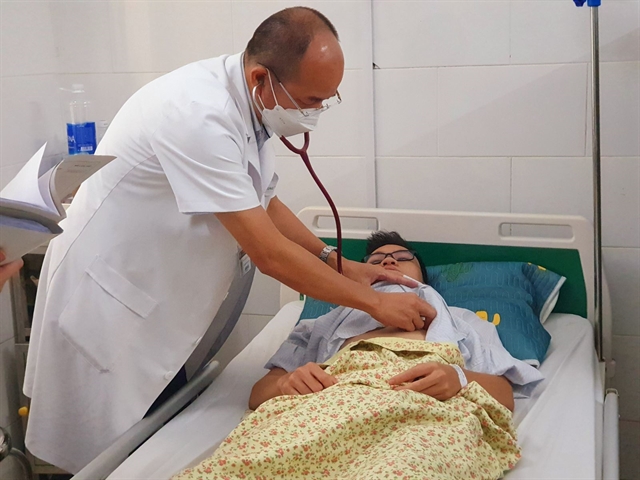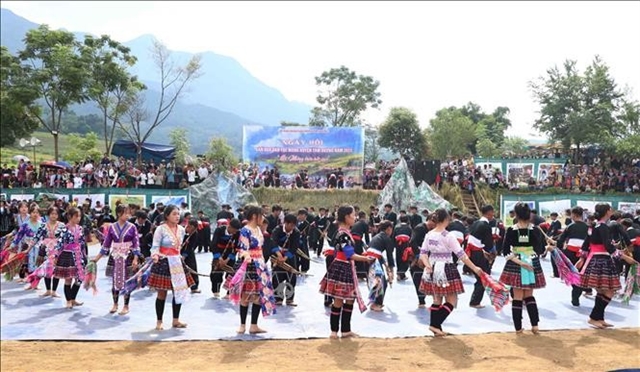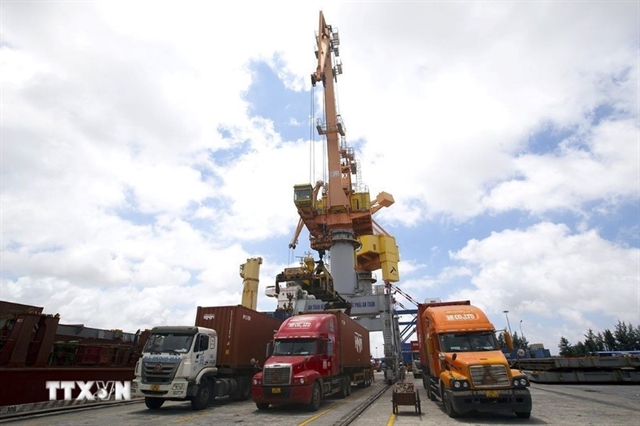 Society
Society

 |
| A dengue patient receives treatment at Bạch Mai Hospital's Tropical Diseases Centre. VNA/VNS Photo |
HÀ NỘI - With 1,378 cases reported last week, Hà Nội is entering the peak of the dengue fever season. Cases are expected to keep rising this month and may only begin decreasing next month.
According to a report by the Hà Nội's Centre for Disease Control (CDC), last week's caseload was an increase of 2.6 per cent compared to the previous week.
Two more deaths relating to dengue were reported in Chương Mỹ and Hà Đông districts.
The city also recorded 31 more outbreaks across the city, with circulating dengue virus types identified as DENV1, DENV2 and DENV4.
Since the beginning of 2022, the city has confirmed 13,437 cases of dengue fever, an increase of 4.2 times compared to the same period in 2021. However, 16 deaths have been reported this year, while there were no deaths in 2021.
Doctor Nguyễn Trung Cấp, Deputy Director of the National Hospital for Tropical Diseases, said that the hospital received 5-10 severe dengue patients daily.
Dengue fever is a disease characterised by fever caused by the dengue virus transmitted by mosquitoes. Symptoms of the disease usually appear after 4-7 days and last 5-7 days, according to the doctor.
Initial symptoms are fever, headache, pain behind the eye socket, muscle and joint pain, and a red rash. Most patients will recover after 5-7 days.
However, five to six per cent of patients worsen. Once patients experience warning signs like fatigue, continuously high fever, abdominal pains, vomiting, nosebleeds, and bleeding gums, they must seek help. If not treated, these symptoms can progress to shock, multiple organ failure, and severe bleeding, leading to death.
When these warning signs are observed, patients needed to go to medical facilities for timely examination and treatment immediately, Cấp said.
Vũ Duy Hưng, Head of Medical Profession, Hà Nội's Department of Health, told Sức khỏe & Đời sống (Health & Life) newspaper that according to surveillance data from 2017 to 2021, on average, Hà Nội recorded about 12,900 cases of dengue each year.
In 2018, 35,665 cases were recorded; in 2019, there were 12,225 cases.
So far this year, the city has recorded more than 13,000 cases, exceeding the risk threshold compared to the average number of cases from 2019 to 2021 but still lower than the number of cases in 2017 when there was an outbreak of dengue fever.
"It is the peak time of dengue in Hà Nội. It is forecast that the number of dengue cases may continue to increase in November and decrease in December," he said.
Facing the complicated situation of the dengue fever epidemic, the city's health sector had proactively implemented disease prevention measures and warned the people, Hưng said.
"Although the number of dengue fever cases tends to increase beyond the epidemic warning threshold, this is not unusual because it follows the annual epidemic trend, calculated on a 5-year cycle from 2017," he said.
He added that some previous years recorded a higher number of cases, for example, 2017 with 37,665 cases; 2015 with 15,412 cases and 2009 with 16,090 cases.
Currently, the Health sector is closely coordinating with People's Committees at all levels to deploy and ensure synchronous and effective preventive measures synchronously.
The City People's Committee and the People's Committees of districts and towns are proactively allocating separate funding sources for dengue fever prevention.
Sufficient medical supply
According to hospital reports, the number of dengue patients who must be hospitalised for treatment is more than 1,400. Of that, the number of cases with severe symptoms accounts for about five per cent (70-80 cases), so the treatment capacity of hospitals can still meet the needs of patients. The city now has more than 1,300 intensive care beds per day.
The Department of Health directs four Grade I General Hospitals and the Đống Đa General Hospital - the leading specialised hospital in Infectious Diseases to organise training sessions for health workers throughout the city's health system on the protocol for diagnosis and treatment of dengue patients.
The health authority also coordinated with experts at the National Hospital for Tropical Diseases to organise a medical review session for deaths caused by dengue.
"Analysis and assessment of risks can help improve the quality of diagnosis, treatment and early detection of severe cases," Hưng said.
At the same time, the health department also issued guidelines and recommendations for medical staff in cases of timely admission of hospitalised patients. Meanwhile, mild patients should self-monitor at home to help ease the hospital's workload.
Hưng said that thanks to the experience of the model, sorting and treatment of COVID-19 patients in the past two years, the Department of Health asked hospitals to actively respond to on-site treatment of patients and ensure adequate supply of drugs, supplies and fluids to treat patients.
Regular coordination and consultation among all levels were made to ensure the effectiveness and safety of treatment, he said.
The Department of Health had not recorded any hospitals lacking drugs, supplies, fluids, or biological products for diagnosis and treatment, he said, adding that the department set up a system to report the treatment of COVID-19 and dengue fever patients daily at medical examination and treatment facilities, so that they could timely solve problems. VNS




